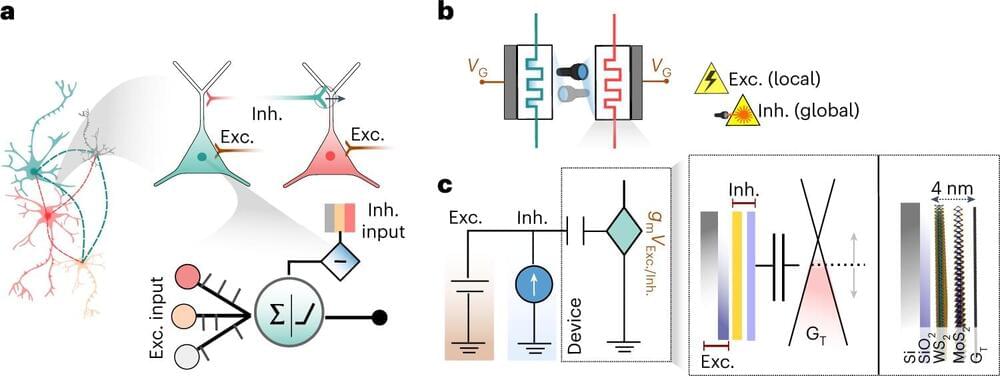Researchers have created atomically thin artificial neurons capable of processing both light and electric signals for computing. The material enables the simultaneous existence of separate feedforward and feedback paths within a neural network, boosting the ability to solve complex problems.
For decades, scientists have been investigating how to recreate the versatile computational capabilities of biological neurons to develop faster and more energy-efficient machine learning systems. One promising approach involves the use of memristors: electronic components capable of storing a value by modifying their conductance and then utilizing that value for in-memory processing.
However, a key challenge to replicating the complex processes of biological neurons and brains using memristors has been the difficulty in integrating both feedforward and feedback neuronal signals. These mechanisms underpin our cognitive ability to learn complex tasks, using rewards and errors.
